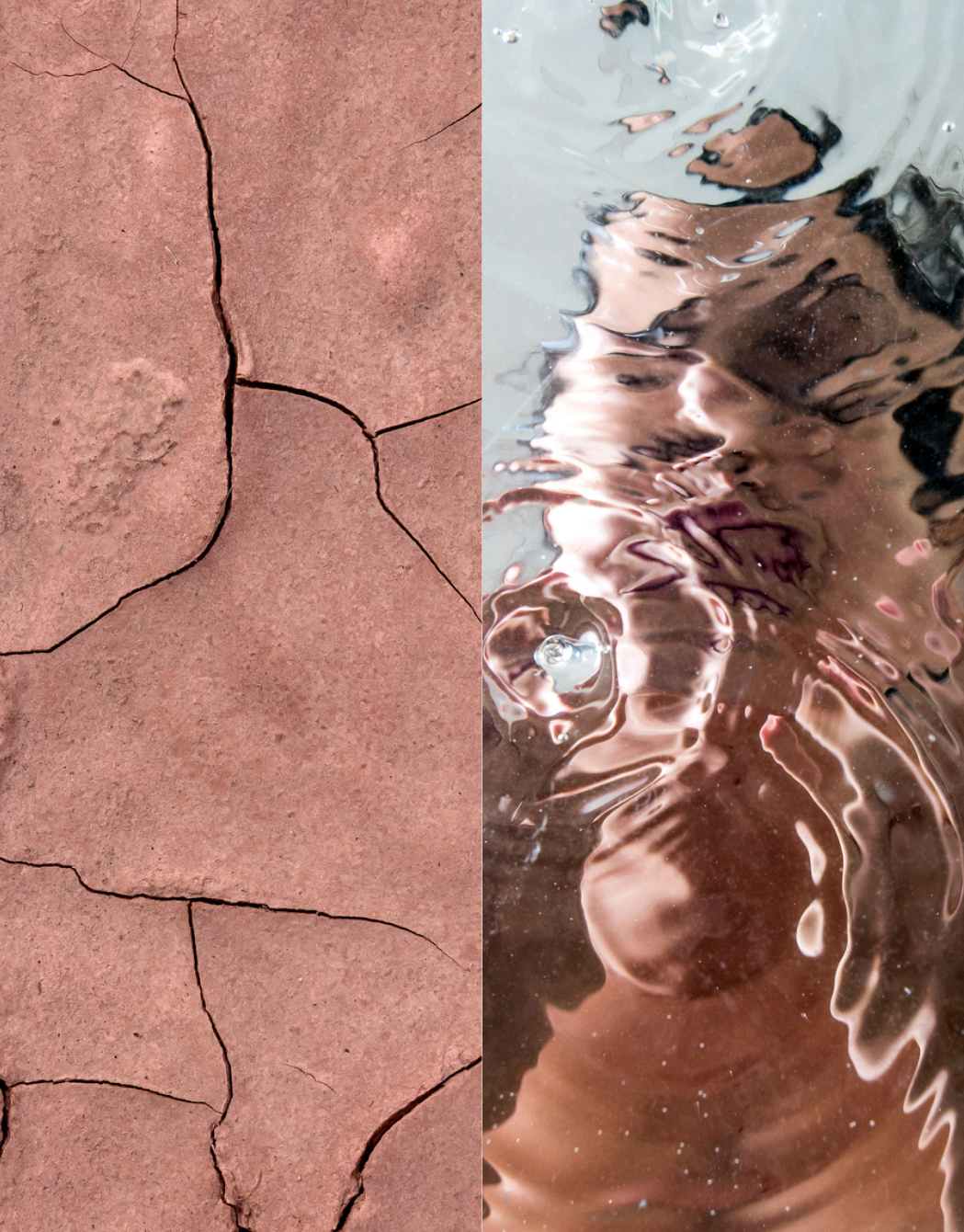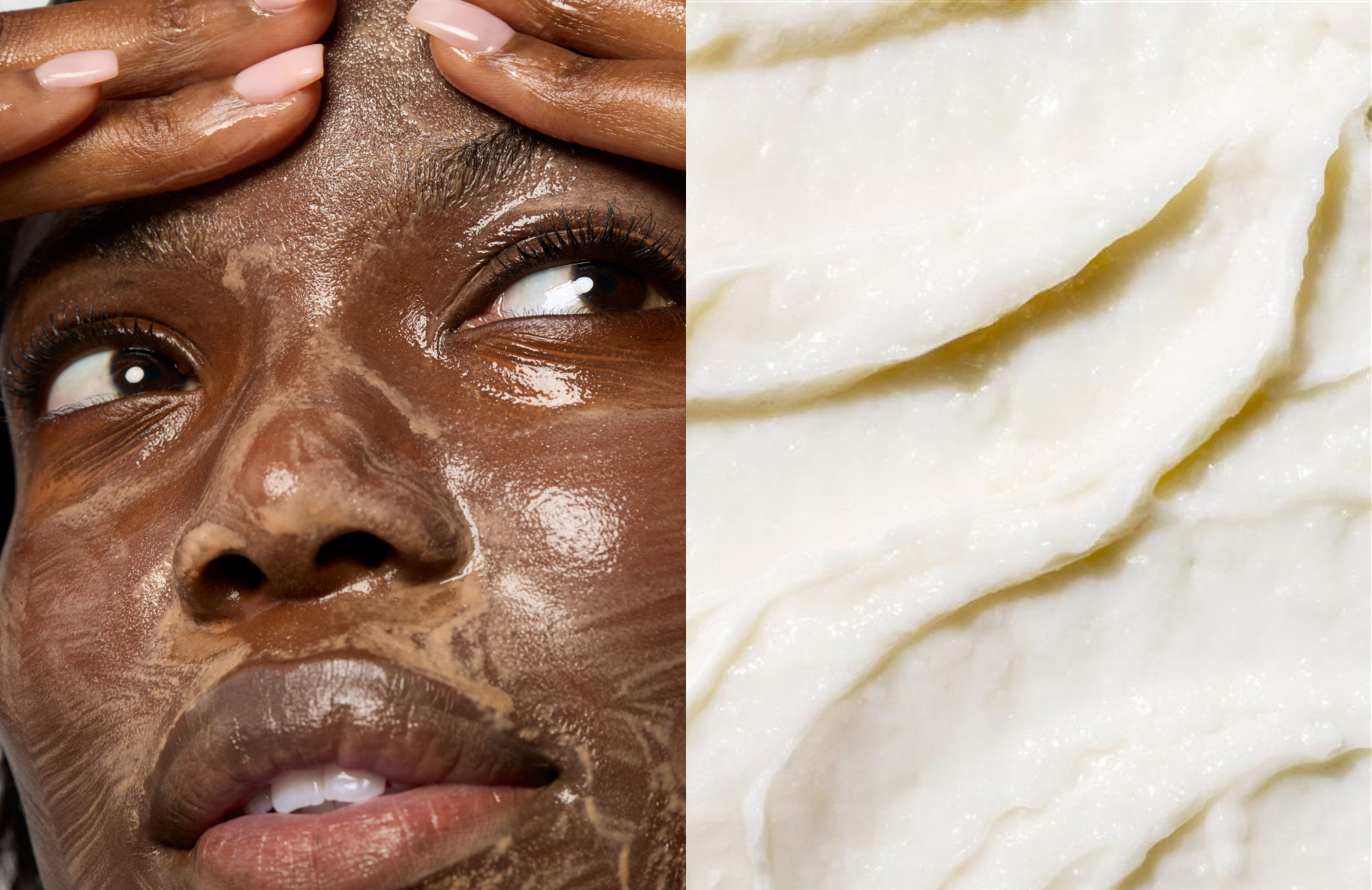Skincare, squalane and…sharks? Surprising facts about this buzzy ingredient

Squalane uncovered: Understanding its role and advantages in skincare
Whether you’re looking to winterize your routine or going for glass skin, enter squalane. Derived from a lipid (or fat) your body naturally produces to keep your skin happy and hydrated, squalane for skin acts as an incredible thirst quencher—and that’s only one of its potential powers.
But what are the benefits of squalane skincare products, exactly? And how can you weave it into your skincare routine?
What is squalane?
Squalane is a hyper-emollient oil that’s modified from squalene—an oil organically generated in the sebaceous glands to keep skin firm, moist and supple.
Just like keratin, elastin and collagen, our supply of this luster-giving oil declines as we age. Indeed, science shows that squalane’s internal source reaches its peak during adolescence before tapering off in our 20s and 30s.
The result? Dry, dehydrated skin and the lack of vibrancy that may come with it. For this reason, squalane is increasingly featured in a variety of skincare products to combat moisture loss and fortify the skin’s barrier, including:
Squalane vs. squalene: what’s the difference?
Chances are you’ve heard of both squalene and squalane, but they’re not synonymous:
- Squalene with an e is the unsaturated fat we naturally make in our sebum glands. And this lipid is key, making up approximately 12% of the sebum we produce and working with a handful of other compounds to keep skin lubricated and functioning at its peak. These include triglycerides, wax esters, fatty acids and cholesterol
- Squalane with an a on its own may offer a bounty of benefits, it’s also super-vulnerable to oxidation and spoilage. To work in skincare products, squalene must go through a process called hydrogenation to turn into the stable, effective product that is squalane
You might ask, is squalane in its original form of squalene available for use? Yes, but at an ethical cost: Squalene oil is often sourced from sharks, where it’s found in abundance from shark liver oil. Given that it requires 3,000 sharks to produce 1 ton of squalene, people are turning to squalane manufactured with plants like sugarcane and olive oil.
Understanding how squalane works
Once squalane has been created and turned into the skincare ingredient version of squalene, it shares the same chemical makeup as other skin savers (like mineral oil) to penetrate the skin’s surface and operate on a cellular level. At the same time, it, like squalane, supports the skin’s barrier against harsh irritants and the havoc they can wreak.
Key benefits of squalane for skin
Squalane has a lightweight feel but acts as a heavy hitter in terms of your skin’s health and radiance. Studies show that it boasts a host of biological actions that can nourish skin and all that it encounters, namely anti-inflammatory and antioxidant properties.
More specifically, squalane may offer these benefits:
Intense hydration
As our levels of squalene decline with time, so does our ability to hold onto moisture. This is compounded by the fact that our skin confronts dozens of factors that may contribute to a dry skin condition.
Squalene has the potential to combat this by mimicking the oil we naturally make and acting as an emollient (or occlusive)—meaning, it offers skin a thin film of “armor” against transepidermal water loss (TEWL) to seal moisture inside.
Anti-aging properties
- Stimulate collagen production: Collagen is one of the most crucial components of skin elasticity, structure and overall vitality. Like squalene, its levels naturally dwindle as we age, and may be exacerbated by smoking, excessive sunlight and a diet packed with sugar and carbs. Fortunately, research indicates that squalane may urge collagen into action and replenish skin’s strength and flexibility, particularly when collagen skincare is paired with vitamin C
- Protect the skin barrier: Pollution, psychological stress, tobacco, chemical irritants, sun damage, and other environmental stressors can threaten the state of your skin’s barrier and lead to the signs of aging, including fine lines and wrinkles, dark splotches and a generally dull and “crepey” appearance. Squalane may help renew your skin’s topmost layer by filling in the gaps between your skin cells and thickening the epidermis while also staving off further harm
- Minimize fine lines and wrinkles: Unlined skin is well-hydrated, healthy skin, which squalane may help you discover through its capacity to lock in moisture. What’s more, its potential to combat wrinkle-forming free radicals (more on this below) may help you stave off fine lines and wrinkles from occurring in the first place. Lastly, squalane is a saturated fat—and that’s one of the keys to skin plumpness, making it an ideal anti-aging skincare product
Non-comedogenic nature
Squalane may be derived from an oil, which may make those with naturally oily skin a bit hesitant to give it a whirl.
Yet, squalane also qualifies as non-comedogenic. This means it won’t clog pores, which you may already know can be a direct line to flare-ups and blemishes. It may also be an ideal skincare ingredient for acne-prone skin because it boasts anti-inflammatory properties that may curb swelling and redness associated with an acne skin condition. What’s more, squalane reduces the overproduction of acne-causing excess sebum by bringing skin back into balance.
Antioxidant protection
Squalane has natural antioxidant properties to counteract the free radicals that trigger oxidative stress, like:
- Pollution
- UV radiation
- Chemicals
As a result, you may find yourself with a smoother, calmer and brighter complexion.
Incorporating squalane into your skincare routine
Implementing squalane into your skincare regimen is a cinch with these top tips:
- Cleanse: Kick off your routine by using a gentle, clarifying cleanser to remove any dirt, oil, or makeup. Pat dry
- Apply: Whether you choose a squalane oil, moisturizer or serum, apply a thin layer of your product to your skin within a few minutes after washing it. This allows for better absorption and preps your skin for your other products, whether that’s a youth-renewing serum or a facial acid
- Moisturize: Moisturizer over a moisturizer? Yes, especially if your leading skincare goal is a softer, silkier complexion
Finish off your routine with a healthy dose of SPF if you’re using squalane in the morning.
Is squalane suitable for all skin types?
Squalane has tremendous versatility. It can be just as effective in revitalizing mature skin as balancing out acne-prone skin. It’s also considered an adaptogen, meaning it may adapt to your skin type and respond to what your skin requires most.
That said, bear in mind that it’s important to assess your skin’s reaction to squalane with a patch test.
How to choose high-quality squalane products
Given the rise in squalane’s popularity, it’s available in a handful of products, both as a solo, targeted ingredient and infused with other skincare product sensations like vitamin C, ceramides, prickly pear oil, azelaic acid, vitamin C or retinol and rose oil.
Not all squalane products are created equal, however. Ensure that the product you choose is:
- Squalane and not squalene
- Formulated with 100% plant-derived ingredients
- Manufactured by a reputable brand
Additionally, if you’d like your squalane to perform double and even triple duty and want to skip using an array of products, consider searching for a single one that includes:
- Niacinamide: Niacinamide may be ideal for skincare-seekers who are especially concerned with oil production but still want a lush, hydrated complexion. Niacinamide products are also known for moderating oil production and treating acne
- Retinol: Retinol skincare may be the holy grail of age-defying ingredients, but it can also leave skin both parched and irritated. Squalane may help neutralize both with its soothing, moisture-boosting properties
Simplify your skincare routine with squalane
Selecting your next (or even first addition) to your skincare product collection can feel like a dizzying experience. Squalane simplifies the process. From acting as a super hydrator to providing antioxidant protection, the benefits of squalane are proving to be legion—all thanks, really, to wonders of the human body and the myriad ways it works to protect and nourish us. Do it a favor in return and treat it, and your skin, with equal kindness. As you explore the world of skincare, consider understanding what ceramides are, the nourishing benefits of prickly pear seed oil, and the transformative benefits of azelaic acid.
The views expressed in this article do not necessarily represent the views of Murad, and are for informational purposes only, even if the advice of physicians and medical practitioners are included. This article is not a substitute for professional medical advice, diagnosis or treatment, and should not be considered specific medical advice.
References for this information:
Healthline website, Squalene vs. squalane
Journal of Chemistry, 2019, volume 2019
Healthline website, What is sebum
Rob Stewart Sharkwater Foundation website, Shark squalene in cosmetics
Molecular Nutrition & Food Research, 2918, volume 62, issue 15
American Academy of Dermatology Association website, Dry skin
Baylor College of Medicine website, Skincare 104
Cleveland Clinic website, Collagen
Scientific Reports website, Vitamin C/Squalene
Cleveland Clinic website, What is squalane


